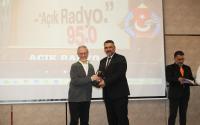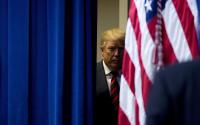By Ahmed RashidMay 2, 2003Foreign Policy in FocusEditor: John Gershman, Interhemispheric Resource Center (IRC)
Anti-American protests in Iraq, such as the April 28 incident in Fallujah that left an estimated 15 Iraqis dead, should not come as a surprise to Washington. Most Iraqis don't share the U.S. vision of a reconstructed Iraq resting on a foundation of Western-style democracy. For many, the end of Saddam Hussein's regime has prompted a yearning for a religious and cultural revival, raising the prospect of an Islamic state based on conservative Shiite beliefs.
Although it appears certain that Iraq is set for a revival of Islamic values, at present there remains ample room for religious developments to move in many directions. The revival could move toward the recognition of Iraq's Islamic legacy while making it compatible with greater freedom, economic development, and openness to the outside world. Such is the approach taken by President Hamid Karzai's administration in Afghanistan. It is also possible, however, that the revival may travel down the road toward Islamic extremism, anti-Westernism and sectarian violence that could easily culminate in a new dictatorship.
The lack of a cohesive American post-war political and economic strategy for Iraq--coupled with the arrogance of the Bush administration and Washington's disregard for a historical perspective--is diminishing the chances for the development of a secular democratic government in Iraq. The country is now developing into a battleground between Shiite and Sunni Muslims, who both seek to fill the leadership void created by the quick collapse of Saddam's regime.
The secularism practiced by the Saddam Hussein's Baath Party is now being repudiated by the Iraqi people. At the same time, many Iraqis are again embracing the Shiite form of Islam that the Iraqi regime suppressed for over three decades. That Shiite Islam could be the guiding force in Iraq's reconstruction is easily understood if the country's collective experience during the Saddam era is taken into account. Iraq is a majority Shiite state that was ruled by a small sect of nominally Sunni Muslims under Saddam. Apart from the Kurdish resistance in northern Iraq, the only form of underground opposition to Saddam during Iraq's long night was provided by Shiite religious leaders. Practically the only institutional dissent that could withstand Saddam's ruthless persecution came from mosques.
Shiite Islam, as compared to Sunni Islam, is more hierarchical, disciplined, and political. Just as in Central Asia, where an underground Islam kept people spiritually alive and connected during the Soviet era, so in Iraq the mosques quietly provided people with a spiritual haven and an alternative to the Baath Party for political expression.
Iraq's exiled political leadership favored by the Americans has little standing in the country--not because they are secular, but because they are perceived to be out of touch with the country's current mood and conditions. They are also seen to be too dependent on the support of foreign occupation forces, namely the U.S. Army.
Many prominent figures in anti-American protests these days are ayatollahs who have emerged from underground. Yet, even as these Shiite leaders demand the departure of U.S. forces and stress an Islamic revival, they also emphasize the need for democratic values. Many urge unity among Shiites and Sunnis, and call for the protection of minority rights, including those of the Kurds. They also want a freely elected government, in large part because Shiite leaders know that, in a free and fair election, they would be well positioned to govern.
There is also a possibility that the Shiite religious revival could produce pressure for the creation of an Islamic state. Such a development would likely to be vigorously opposed by Sunnis, with encouragement from Iraq's Sunni Arab neighbors. Many Sunnis feel uncomfortable about the prospect of a Shiite Iraqi state, especially one with close ties to the Islamic Republic of Iran, which is also dominated by Shiites.
Most oil-rich Arab Gulf states have large Shiite minorities, and many of them are subjected to discriminatory practices. Rulers in the Gulf region are thus worried that a Shiite Iraq could serve as an example that causes their own Shiite minorities to become restive. As moderate and hardline Shiite leaders struggle for influence in post-war Iraq, with Iran trying likely trying to influence the outcome, Iraq's Arab neighbors--particularly Syria, Egypt, and Saudi Arabia--appear sure to sponsor Sunni elements in Baghdad.
(Ahmed Rashid is a journalist and the author of Jihad: The Rise of Militant Islam in Central Asia and a contributor to Foreign Policy in Focus (online at www.fpif.org) and to Power Trip: Unilateralism and Global Strategy after September 11 (Seven Stories, 2003). This first appeared on EurasiaNet (online at www.eurasianet.org).)






